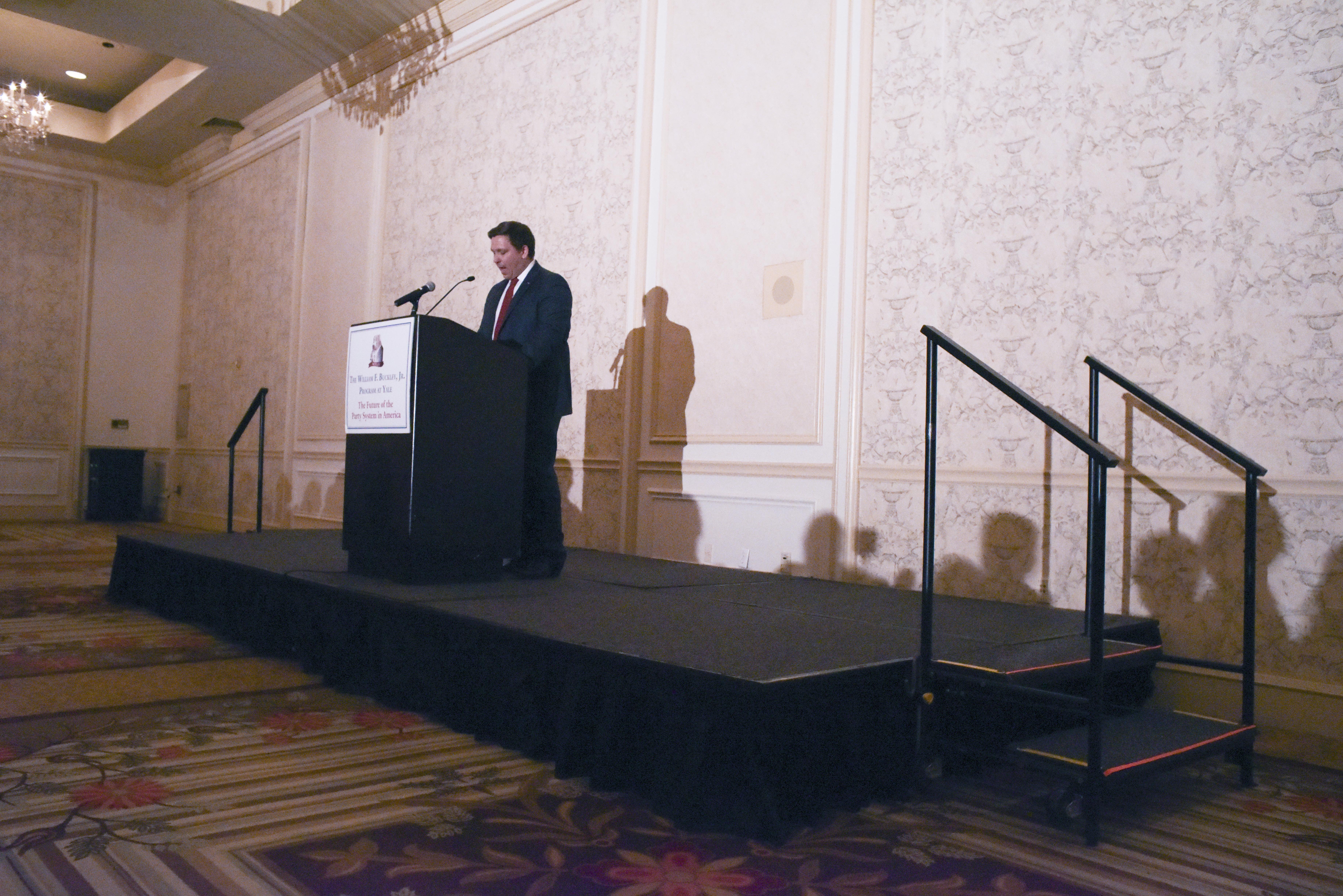
Matthew Leifheit
Free speech and the future of the American party system were discussed at the sixth annual William F. Buckley Jr. Program conference and gala on Friday.
The event featured three panel discussions in Linsly-Chittenden Hall about the history, present state and future of America’s party system. At a reception and dinner at the Omni Hotel, U.S. Rep. Ron DeSantis ’01 (R-FL) called for the restoration of a constitutional government and rule of law. He argued that the executive and judicial branches of government have overpowered the legislative branch, and said adjusting the constitutional balance of powers is essential to the future of the conservative movement and the American party system as a whole.
“If you look at the founding fathers, … they did not believe that [the three branches of government] were equal in authority in any stretch of the imagination,” said DeSantis. “Just look at the Constitution.”
Lauren Noble ’11, founder and executive director of the Buckley Program, and Joshua Altman ’17, president of the Buckley Program, said holding the Buckley conference is important to counteract what Noble described as pernicious “campus group-think” at Yale.
“It is obvious that there is a disconnect between elite institutions like Yale and the American people,” Noble said. “As long as our elite institutions remain so close-minded and uncharitable to the anxieties and aspirations of so many of their fellow citizens, the outlook of our civil discourse is grim, and that is why in exposing students of all political beliefs to ideas they might not hear, the Buckley program is providing a valuable service.”
In his keynote address, DeSantis echoed Noble’s concerns about free speech on college campuses.
“Does [the Omni Hotel] qualify as a safe space? How does that work?” DeSantis said. “I read in The Wall Street Journal an observation I agree with, that the biggest problems in the U.S. with free speech exist on our college campuses, written by the President of Yale … in 1991. Unfortunately, I think Yale has become somewhat of a laughingstock with the way that some of this stuff has been handled, so my hat’s off to [the Buckley Program] for fighting that tide.”
DeSantis said today’s political system is unrecognizable as the one that the founding fathers imagined, since the legislative branch is currently the weakest branch by far, he said. DeSantis added that the Republican Party needs to channel populist impulses in a healthy direction — toward rebalancing the powers and limiting the power of government.
Altman said the increasing diversity of political and social groups in the Buckley Program reflects America’s ongoing political realignment.
“If the change of composition of the Buckley Program shows anything, we’re finding American views and identities and policy preferences that don’t neatly map on to the … party system,” Altman said.
According to Altman, student interest in the Buckley program has been on the rise, with 81 new members joining this fall. Last year, after the campus protests, Altman said more than 100 students applied to the program. Altman also noted a spike in interest among students with liberal and moderate views.
“I think [the rise in membership] was influenced by the protests to a certain extent … people were disgusted by what they saw and by the way students treat other students and their professors,” Altman said.
William Merrill ’19, who won third place in a Buckley essay contest, predicted that the Republican Party will dissolve in the near future.
“The Republican party is so conflicted in the different values and interests that it represents that it’s sort of going to disappear within the next 10 years and be replaced by the populist movement that kind of sprung out of it,” Merrill said.
While Merrill is a self-proclaimed liberal and not a fellow of the Buckley program, Merrill said he found the Buckley program conference to be a good way to hear points of view he does not hear often from his peers.
Declan Kunkel ’19, a Buckley fellow, emphasized the intellectual diversity displayed in the conference and in the program itself. He added that the conference demonstrated that the conservative movement encompasses a wide swath of people and ideas.
“I think it’s really important that the outside community recognizes that it’s not just one ideology,” Kunkel said.
The Buckley Program was founded in 2010.







